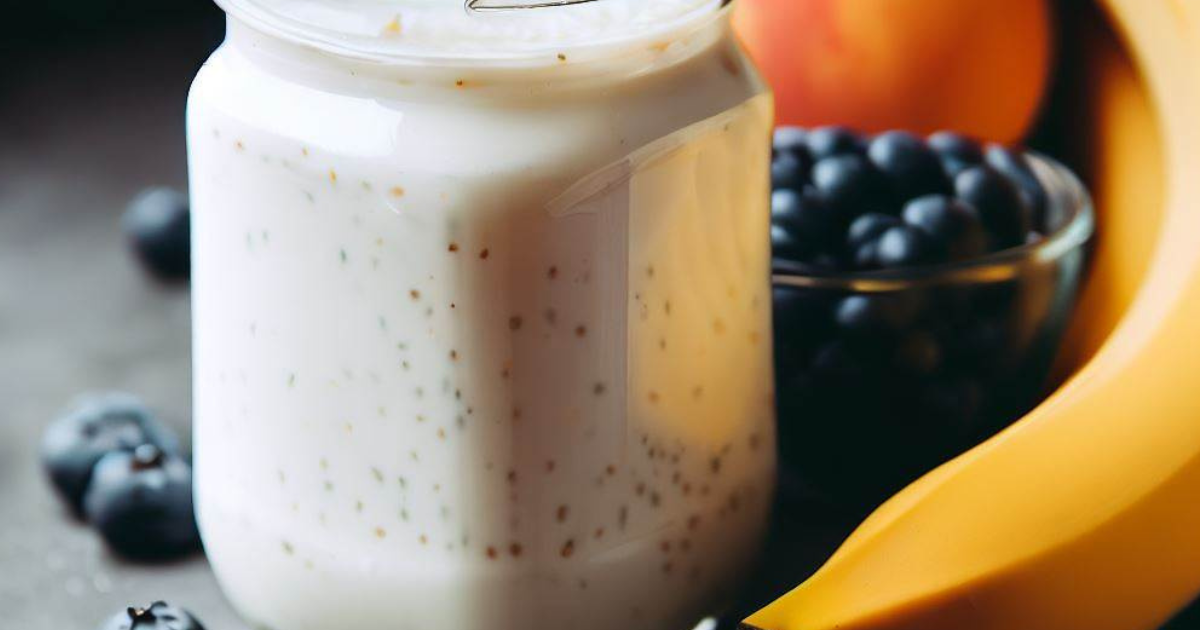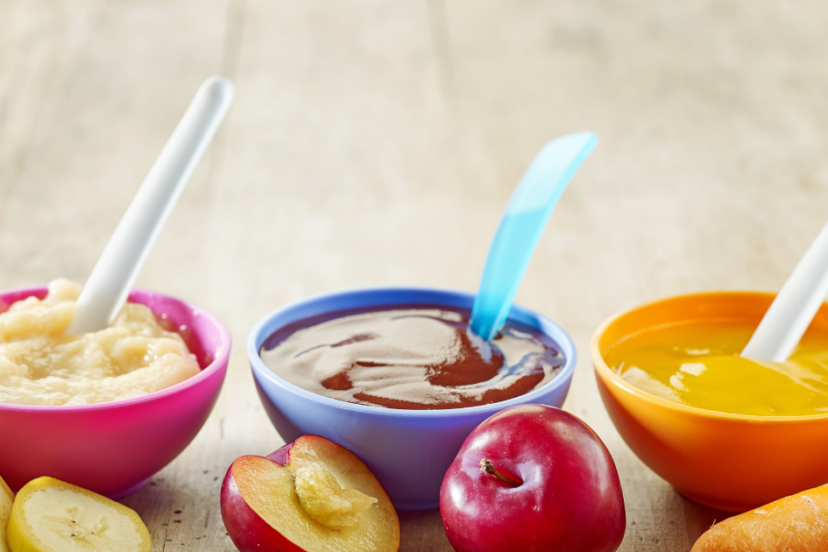Baby Yogurt: Choosing the Perfect Ingredients
Benefits of Baby Yogurt
Nutritional Value of Baby Yogurt
Easy Digestion and Introduction to New Flavors
Factors to Consider When Choosing Baby Yogurt
Quality and Ingredients
Allergies and Intolerances
15 Benefits of Baby Yogurt – Nurturing Little Beginnings

The introduction of solid foods marks a significant milestone in a baby’s life, and yogurt emerges as a delightful addition, packed with nourishment and goodness. In this exploration, I’ll guide you through the remarkable benefits of incorporating yogurt into your baby’s diet, setting the stage for a healthy and thriving start.
1. Nutrient-Rich Source of Calcium:
Yogurt is a natural source of calcium, a vital mineral essential for strong bones and teeth development in growing babies.
2. Protein Powerhouse for Growth:
Protein is a building block for a baby’s developing body. Yogurt provides a protein boost that supports muscle growth and overall development.
3. Introduction to Probiotics:
The live probiotics in yogurt contribute to a balanced gut flora, enhancing digestion and laying the foundation for a healthy immune system.
4. Essential Vitamins and Minerals:
Yogurt offers a spectrum of essential vitamins like B12 and minerals like phosphorus, crucial for brain development and overall health.
5. Digestive Comfort:
Introducing yogurt to babies can help alleviate digestive issues. Probiotics aid in digestion, reducing the likelihood of constipation and tummy discomfort.
6. Allergen-Friendly Option:
Yogurt is often well-tolerated by babies who may be sensitive to other dairy products. Its lower lactose content makes it a gentler choice.
7. Brain-Boosting Fats:
Healthy fats present in yogurt are beneficial for brain development and cognitive function in infants.
8. Immune System Support:
The probiotics in yogurt play a crucial role in supporting the baby’s developing immune system, helping to ward off illnesses.
9. Texture and Taste Exploration:
Introducing yogurt to babies exposes them to new textures and flavors, encouraging their palate to develop and embrace a variety of foods.
10. Easy Transition to Solid Foods:
The creamy texture of yogurt makes it an ideal first food for babies transitioning to solids, providing a gentle introduction to new eating experiences.
11. Satiety and Sleep Aid:
The protein and healthy fats in yogurt contribute to a sense of fullness, potentially promoting longer periods of sleep for babies.
12. Natural Source of Energy:
Yogurt’s nutrient profile offers a quick and easily digestible source of energy for active and growing babies.
13. Enhanced Nutrient Absorption:
Probiotics may assist in the absorption of essential nutrients, ensuring that your baby optimally benefits from their diet.
14. Skin Health Support:
Yogurt’s vitamins and probiotics can contribute to healthy skin for your baby, reducing the likelihood of skin issues.
15. Versatile and Palatable Option:
Mixing yogurt with fruits or grains introduces variety to your baby’s diet, making mealtime an exciting adventure.
In the enchanting realm of infant nutrition, yogurt emerges as a gentle and nourishing addition that enriches your baby’s diet and overall health. By embracing the remarkable benefits of yogurt and incorporating it into your baby’s culinary journey, you provide a strong foundation for growth, development, and a lifelong love for wholesome nutrition.
Balancing the Choices: Exploring the Potential Risks of Introducing Yogurt to Babies

While yogurt is often celebrated for its nourishing qualities, it’s equally important to be aware of the potential risks when introducing it to our precious little ones. In this exploration, I’ll guide you through a comprehensive examination of the potential risks associated with incorporating yogurt into a baby’s diet, ensuring that we make informed decisions that prioritize our baby’s well-being.
1. Allergies and Sensitivities:
Dairy allergies are a common concern among infants. Introducing yogurt too early could trigger allergic reactions, leading to symptoms such as rash, hives, or digestive discomfort.
2. Lactose Intolerance:
Some babies may have difficulty digesting lactose, the natural sugar found in dairy products like yogurt. Lactose intolerance can lead to bloating, gas, and tummy discomfort.
3. High Caloric Intake:
While yogurt is nutritious, excessive consumption can lead to a high caloric intake. Babies who consume too many calories from yogurt may be at risk of weight gain.
4. Disrupted Nutrient Balance:
Relying heavily on yogurt for a baby’s nutrition might lead to an imbalanced intake of other essential nutrients. Variety is key for a well-rounded diet.
5. Choking Hazard:
Yogurt, especially when offered as a finger food, can pose a choking hazard for babies who are not yet developmentally ready to handle such textures.
6. Added Sugars:
Flavored yogurts often contain added sugars, which are not recommended for babies under the age of one. High sugar intake at a young age could lead to future health issues.
7. Potential for Overfeeding:
Babies may develop a preference for yogurt, leading to overconsumption and neglect of other crucial food groups. Also note that over feeding can also occur for a breastfed baby.
8. Digestive Upset:
Introducing yogurt too early or in large quantities can disrupt a baby’s delicate digestive system, leading to stomach upset or diarrhea.
9. Masking Allergic Reactions:
Mixing yogurt with other foods might mask potential allergic reactions, making it harder to identify the specific trigger.
10. Interference with Iron Absorption:
Calcium in yogurt can inhibit the absorption of iron from other foods, potentially leading to iron deficiency if not managed properly.
11. Oral Health Concerns:
Frequent consumption of yogurt, especially sweetened varieties, could contribute to dental issues such as cavities in baby teeth.
12. Unbalanced Microbiome:
While probiotics in yogurt offer benefits, an imbalance in gut bacteria could potentially result from excessive or inappropriate yogurt consumption.
13. Food Aversion:
Excessive reliance on yogurt might lead to a limited palate, making it challenging for babies to accept a diverse range of foods.
14. Potential for Allergic Sensitization:
Introducing yogurt too early or frequently might increase the risk of developing allergies later in life.
15. Missed Nutrient-Rich Foods:
Relying solely on yogurt might mean missing out on other nutrient-rich first foods that are important for a baby’s development.
In the delicate journey of introducing solid foods to our babies, knowledge is our greatest ally. Understanding the potential risks associated with yogurt empowers us to make thoughtful decisions that prioritize our baby’s health and well-being. By striking a careful balance and consulting with healthcare professionals, we can navigate the path of baby nutrition with confidence and ensure a strong foundation for their growth and development.
Tips for Introducing Baby Yogurt
Age-Appropriate Introduction
Safe Serving Sizes and Precautions
Homemade Baby Yogurt Recipes
Simple Fruit Puree Yogurt

Ingredients:
- Plain baby yogurt
- Fresh fruits (e.g., banana, blueberries, or mango)
- Blender
Instructions:
- In a blender, combine the plain baby yogurt and your chosen fresh fruits.
- Blend until smooth and creamy.
- Serve chilled in a small portion, allowing your baby to explore the delightful flavors.
Veggie-Infused Yogurt Blend

Ingredients:
- Plain baby yogurt
- Steamed vegetables (e.g., carrots, peas, or sweet potatoes)
- Blender
Instructions:
- Steam the vegetables until soft and tender.
- In a blender, combine the plain baby yogurt and the steamed vegetables.
- Blend until well incorporated and smooth.
- Offer a small portion to your baby, introducing them to the wonders of vegetable flavors.
Probiotic-Packed Yogurt Smoothie

Ingredients:
- Plain baby yogurt
- Fresh or frozen fruits (e.g., strawberries, kiwi, or pineapple)
- Baby cereal or oats (optional)
- Blender
Instructions:
- In a blender, combine the plain baby yogurt, fresh or frozen fruits, and baby cereal or oats if desired.
- Blend until creamy and well mixed.
- Pour the yogurt smoothie into a sippy cup or a small bowl.
- Serve it as a refreshing and nutrient-packed snack for your little one.
Feel free to get creative with these recipes by adding different fruits or vegetables to suit your baby’s taste preferences and dietary needs.
Final remarks on Baby Yogurt
FAQs
1. Is baby yogurt safe for infants under six months?
2. Can I give flavored yogurt to my baby?
3. How much baby yogurt should I serve at a time?
4. Are there any yogurt options for babies with cow’s milk allergy?
5. Can I freeze homemade baby yogurt for later use?
*We may earn a commission from purchases made through our links, at no cost to you. This does not affect our product recommendations. Please see our disclosure to learn more.




